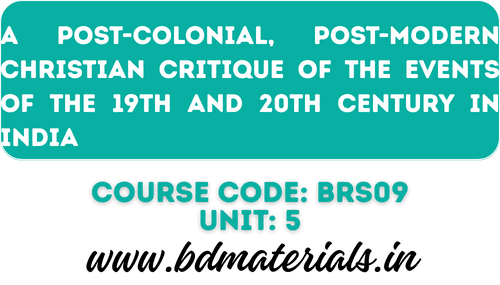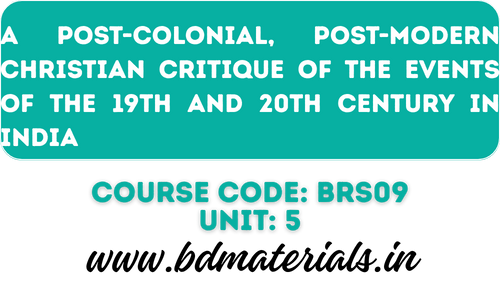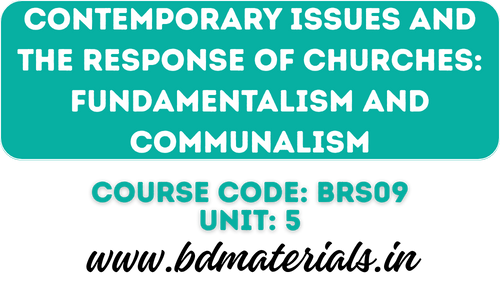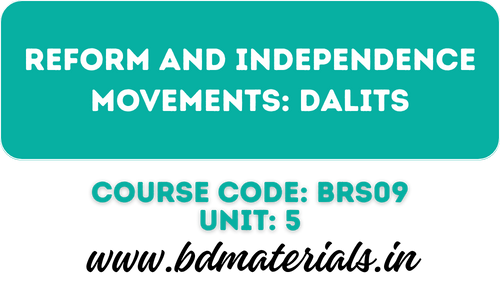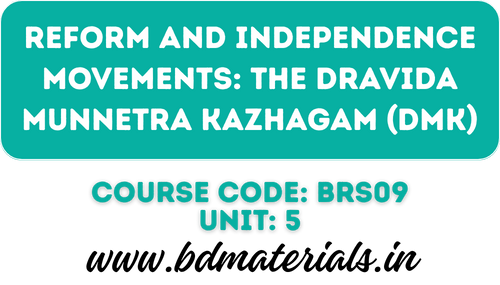Political Parties, Civil Society Movements and the Church
I. What are Civil Society Movements?
The term ―civil society today is increasingly used in conversations, discussions, and press statements of popular and unidentified characters. In the period in which we live, it is clear that civil society has a great value. According to some sociologists, this term has taken as much importance as it deals with terms and concepts such as freedom and historical value. Although this term is used very often today, we must bear in mind that this term is not an invention of the twentieth century.
The term civil society goes back to Aristotle’s phrase koinonia politike, occurring in his Politics, where it refers to a ‘community’, corresponding with the Greek city-state (polis) characterized by a shared set of norms and ethos, in which free citizens on an equal footing lived under the rule of law.
The term ―civil society generally is used to refer to social relations and organizations outside the state or governmental control. Sometimes it is also taken to mean outside the economic or business sphere as well. Usually ―civil society refers to nongovernmental organizations (NGOs) and associations that people belong to for social and political reasons: churches and church groups, community groups, youth groups, service organizations, interest groups, and academic institutions and organizations, for example. It also refers to the activities of these organizations.
Though independent of the governmental structure, these organizations frequently become involved in political activities. They try to influence governmental decision making and participate in a variety of public participation processes. As such, the establishment and maintenance of a healthy civil society is extremely important for the successful development and operation of democratic political systems.
In a certain way, political parties can be considered as civil society organizations that summarize the interest of a particular group (or groups), articulate and represent them. By participating in democratic elections, they want to present these interests to formal political representatives and institutions. Civil society organizations can perform certain functions that also apply to parties. However, they cannot fulfill the most important function of the parties; Participation in general elections, which not only assures parties of their political power but at the same time, provides them with representation.
II. Importance of Civil Society Movements
During times of crisis created by war, the structures of civil society often disintegrate or are forcefully closed. The same thing happens when authoritarian or autocratic governments see civil institutions as a threat and close them down. This greatly weakens the integrative system, and leads to social relations based largely on fear and force. Key to overcoming such a society is the re-establishment of a multitude of social and political NGOs, which give people a voice in the affairs of their life, give them a sense of belonging and integration with other countrymen and women, and connect them with their democratic system in a meaningful way.
Once civil society has been eliminated, its recovery is very slow. It can be aided significantly by outside assistance–by international NGOs coming in and helping the local people start parallel organizations of their own. Training fledgling organizations in organizational and advocacy skills can be helpful, as can training in goal setting, option analysis, and conflict resolution. Yet it is important that organizations be able to form in their own way to meet their own needs–they should not simply be little models of outside organizations that work in different places and different cultures.
Although civil society exists independently of the state, it is dependent on the state’s acceptance to be able to grow and flourish. People must have the freedom to associate, to speak freely, to publish, and to participate in social and political processes without fearing repercussions. Without such freedom, civil society will be stunted at best.
Civil society groups may establish ties to political parties and the state, but they must retain their independence, and they do not seek political power for themselves.
Often in transitions, groups arise that seek to monopolize the lives and thinking of their members. These groups do not tolerate the right of their members to dissent, and they do not respect other groups that disagree with them. Some of these groups may merely be fronts for political parties or movements that seek to win control of the state. These groups are not part of civil society and they do not contribute to building a democracy.
III. Role of Civil Society Movements in Building and Maintaining Democracy
- Limit and control the power of the state: The first and most basic role of civil society is to limit and control the power of the state. Of course, any democracy needs a well-functioning and authoritative state. But when a country is emerging from decades of dictatorship, it also needs to find ways to check, monitor, and restrain the power of political leaders and state officials.Civil society actors should watch how state officials use their powers. They should raise public concern about any abuse of power. They should lobby for access to information, including freedom of information laws, and rules and institutions to control corruption.
- Expose corruption: This constitutes a second important function of civil society: to expose the corrupt conduct of public officials and lobby for good governance reforms. Even where anti-corruption laws and bodies exist, they cannot function effectively without the active support and participation of civil society.
- Promote political participation: A third function of civil society is to promote political participation. NGOs can do this by educating people about their rights and obligations as democratic citizens, and encouraging them to listen to election campaigns and vote in elections. NGOs can also help develop citizens’ skills to work with one another to solve common problems, to debate public issues, and express their views.
- Develop other values of democracy: Fourth, civil society organizations can help to develop the other values of democratic life: tolerance, moderation, compromise, and respect for opposing points of view. Without this deeper culture of accommodation, democracy cannot be stable. These values cannot simply be taught; they must also be experienced through practice. We have outstanding examples from other countries of NGOs—especially women’s groups—that have cultivated these values in young people and adults through various programs that practice participation and debate.
- Develop programs for democratic civic action: Fifth, civil society also can help to develop programs for democratic civic education in the schools as well. After dictatorship, comprehensive reforms are needed to revise the curricula, rewrite the textbooks, and retrain teachers in order to educate young people about the crimes of the past and teach them the principles and values of democracy. This is too important a task to leave only to officials in the education ministry. Civil society must be involved as a constructive partner and advocate for democracy and human rights training.
- Lobby for the needs and concerns of their members: Sixth, civil society is an arena for the expression of diverse interests, and one role for civil society organizations is to lobby for the needs and concerns of their members, as women, students, farmers, environmentalists, trade unionists, lawyers, doctors, and so on. NGOs and interest groups can present their views to parliament and provincial councils, by contacting individual members and testifying before parliamentary committees. They can also establish a dialogue with relevant government ministries and agencies to lobby for their interests and concerns.And it is not only the resourceful and well organized who can have their voices heard. Over time, groups that have historically been oppressed and confined to the margins of society can organize to assert their rights and defend their interests as well.
- Provide new forms of interest and solidarity: A seventh way civil society can strengthen democracy is to provide new forms of interest and solidarity that cut across old forms of tribal, linguistic, religious, and other identity ties. Democracy cannot be stable if people only associate with others of the same religion or identity. When people of different religions and ethnic identities come together on the basis of their common interests as women, artists, doctors, students, workers, farmers, lawyers, human rights activists, environmentalists, and so on, civic life becomes richer, more complex, and more tolerant.
- Provide training ground for future political leaders: Eighth, civil society can provide a training ground for future political leaders. NGOs and other groups can help to identify and train new types of leaders who have dealt with important public issues and can be recruited to run for political office at all levels and to serve in provincial and national cabinets. Experience from other countries shows that civil society is a particularly important arena from which to recruit and train future women leaders.
- Inform the public about issues: Ninth, civil society can help to inform the public about important public issues. This is not only the role of the mass media, but of NGOs which can provide forums for debating public policies and disseminating information about issues before parliament that affect the interests of different groups, or of society at large.
- Mediate and help resolve conflict: Tenth, civil society organizations can play an important role in mediating and helping to resolve conflict. In other countries, NGOs have developed formal programs and training of trainers to relieve political and ethnic conflict and teach groups to solve their disputes through bargaining and accommodation.
- Monitor the conduct of elections: Eleventh, civil society organizations have a vital role to play in monitoring the conduct of elections. This requires a broad coalition of organizations, unconnected to political parties or candidates, that deploys neutral monitors at all the different polling stations to ensure that the voting and vote counting is entirely free, fair, peaceful, and transparent. It is very hard to have credible and fair elections in a new democracy unless civil society groups play this role.
Finally, civil society is not simply in tension with the state. Because civil society is independent of the state doesn’t mean that it must always criticize and oppose the state. In fact, by making the state at all levels more accountable, responsive, inclusive, effective—and hence more legitimate—a vigorous civil society strengthens citizens’ respect for the state and promotes their positive engagement with it.
A democratic state cannot be stable unless it is effective and legitimate, with the respect and support of its citizens. Civil society is a check, a monitor, but also a vital partner in the quest for this kind of positive relationship between the democratic state and its citizens.
Friendly Note
Bachelor of Divinity Materials is your go-to resource for comprehensive Biblical studies, supporting students in Bachelor of Divinity (B.D.) and other theological courses. Our platform offers access to the full syllabus, detailed answers, and a vast collection of assignments, study guides, articles, and research papers to help you excel academically.
We provide downloadable PDFs of study materials, including books and journals, for convenient learning anytime, anywhere. Whether preparing for exams or conducting research, our resources cater to both students and scholars in biblical studies.
Committed to empowering theological learners, we aim to deliver high-quality, authentic study materials. Explore Bachelor of Divinity Materials to deepen your understanding of God’s Word and Christian doctrine, making it a valuable resource for aspiring ministers and anyone dedicated to theology.
